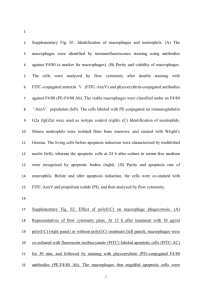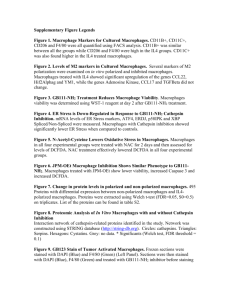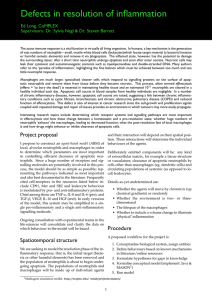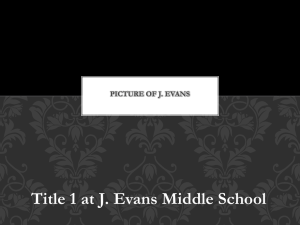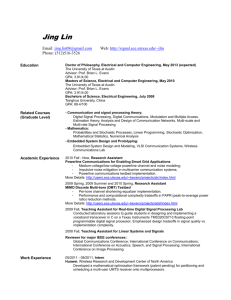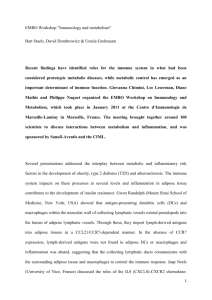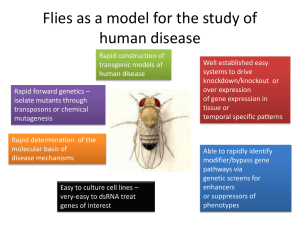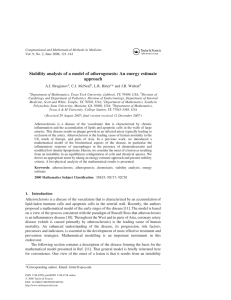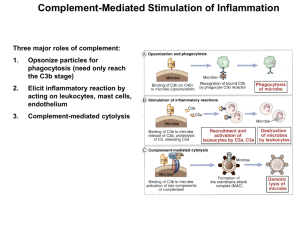Nociceptin mediated microvascular inflammation during sepsis
advertisement
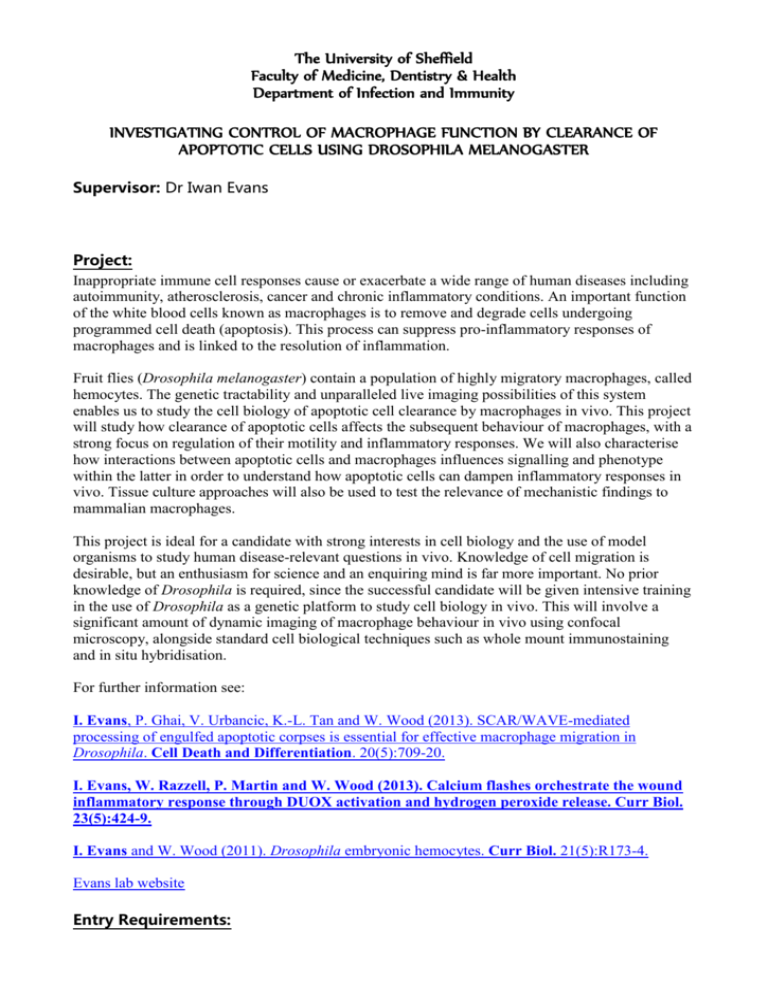
The University of Sheffield Faculty of Medicine, Dentistry & Health Department of Infection and Immunity INVESTIGATING CONTROL OF MACROPHAGE FUNCTION BY CLEARANCE OF APOPTOTIC CELLS USING DROSOPHILA MELANOGASTER Supervisor: Dr Iwan Evans Project: Inappropriate immune cell responses cause or exacerbate a wide range of human diseases including autoimmunity, atherosclerosis, cancer and chronic inflammatory conditions. An important function of the white blood cells known as macrophages is to remove and degrade cells undergoing programmed cell death (apoptosis). This process can suppress pro-inflammatory responses of macrophages and is linked to the resolution of inflammation. Fruit flies (Drosophila melanogaster) contain a population of highly migratory macrophages, called hemocytes. The genetic tractability and unparalleled live imaging possibilities of this system enables us to study the cell biology of apoptotic cell clearance by macrophages in vivo. This project will study how clearance of apoptotic cells affects the subsequent behaviour of macrophages, with a strong focus on regulation of their motility and inflammatory responses. We will also characterise how interactions between apoptotic cells and macrophages influences signalling and phenotype within the latter in order to understand how apoptotic cells can dampen inflammatory responses in vivo. Tissue culture approaches will also be used to test the relevance of mechanistic findings to mammalian macrophages. This project is ideal for a candidate with strong interests in cell biology and the use of model organisms to study human disease-relevant questions in vivo. Knowledge of cell migration is desirable, but an enthusiasm for science and an enquiring mind is far more important. No prior knowledge of Drosophila is required, since the successful candidate will be given intensive training in the use of Drosophila as a genetic platform to study cell biology in vivo. This will involve a significant amount of dynamic imaging of macrophage behaviour in vivo using confocal microscopy, alongside standard cell biological techniques such as whole mount immunostaining and in situ hybridisation. For further information see: I. Evans, P. Ghai, V. Urbancic, K.-L. Tan and W. Wood (2013). SCAR/WAVE-mediated processing of engulfed apoptotic corpses is essential for effective macrophage migration in Drosophila. Cell Death and Differentiation. 20(5):709-20. I. Evans, W. Razzell, P. Martin and W. Wood (2013). Calcium flashes orchestrate the wound inflammatory response through DUOX activation and hydrogen peroxide release. Curr Biol. 23(5):424-9. I. Evans and W. Wood (2011). Drosophila embryonic hemocytes. Curr Biol. 21(5):R173-4. Evans lab website Entry Requirements: Candidates must have a first or upper second class honours degree or significant research experience. Enquiries: Interested candidates should in the first instance contact Iwan Evans (i.r.evans@sheffield.ac.uk). How to apply: Please complete a University Postgraduate Research Application form and attach at least two references to your application. To complete the application form please visit: www.shef.ac.uk/postgraduate/research/apply. Please clearly state the prospective main supervisor in the respective box and select ‘Infection & Immunity’ as the department. Website: http://www.sheffield.ac.uk/faculty/medicine-dentistryhealth/graduateschool/prospectivepg/vacancies/ii Closing date: To be agreed

